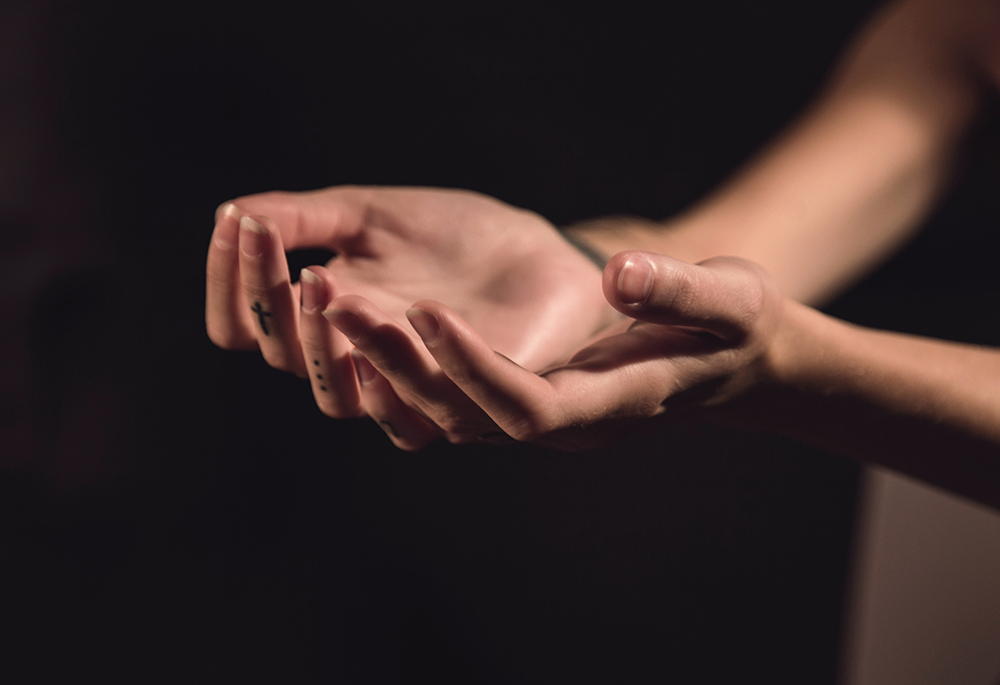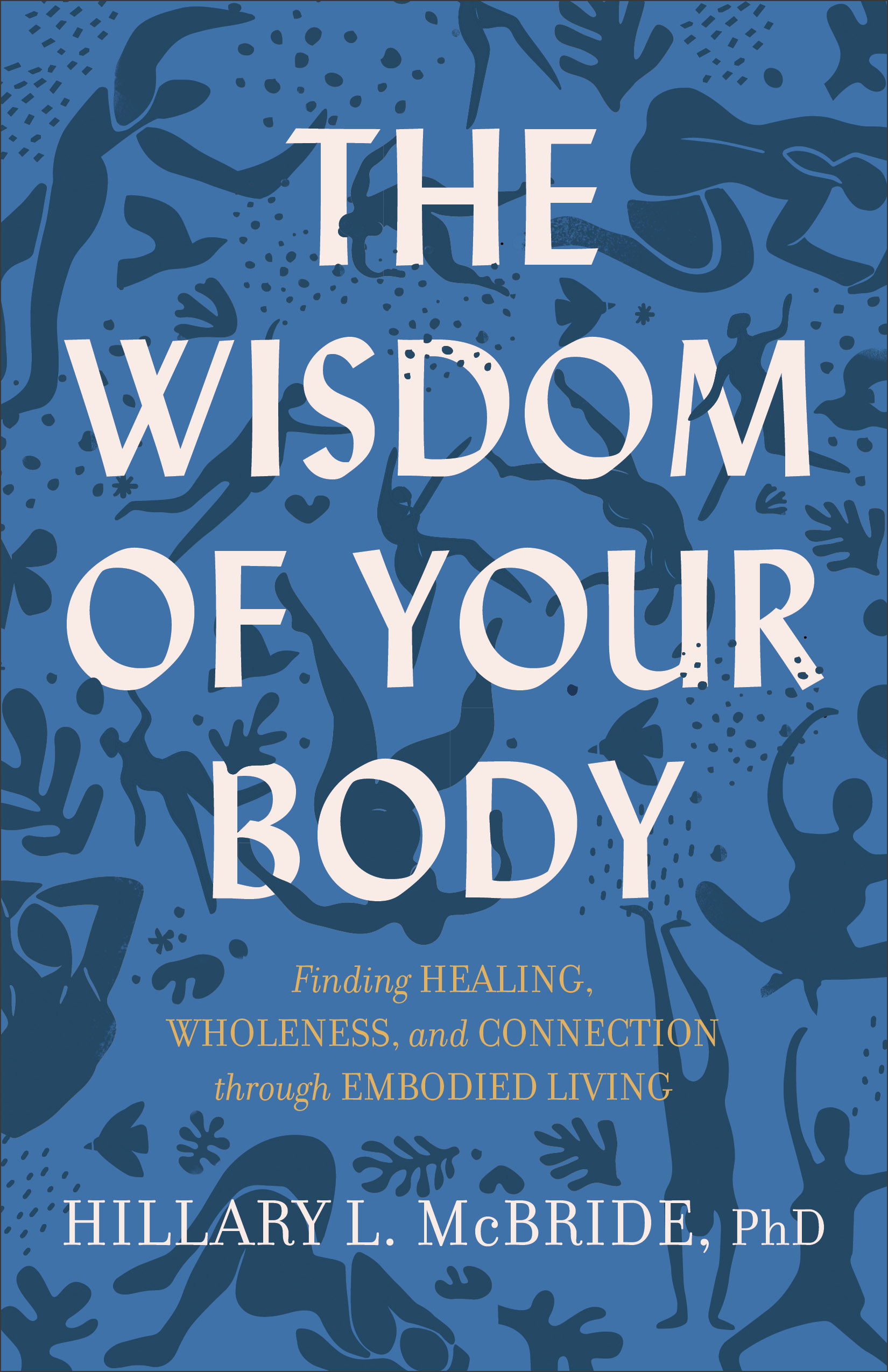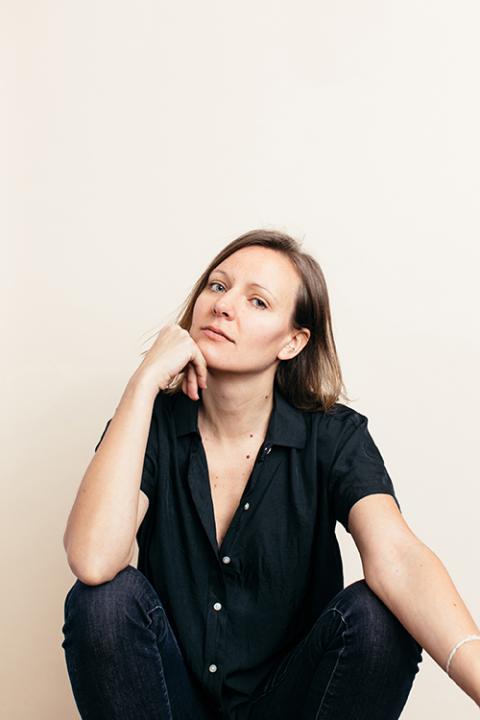
(Unsplash/Milada Vigerova)
"Take this, all of you, and eat of it: This is my body, which will be given up for you," a priest says in persona christi during the consecration at every Mass. "This is my body," I repeat to myself, not because I am celebrating the Mass, which as a woman I cannot do, but because it's true. I am in this body, in my body. "This is my body," I keep repeating. What does it mean for me to be in my body?
I found myself reflecting on that phrase over the course of the week that I read Hillary McBride's latest book The Wisdom of Your Body: Finding Healing, Wholeness, and Connection Through Embodied Living. "Embodiment," McBride writes, "is the experience of being a body, not just in isolation but also in the world." McBride, a psychologist based in Vancouver, British Columbia, invites us on a journey to reexamine what we think we know about our bodies and how we inhabit them.

It's difficult to talk about a book that is so centered on the experiences of the reader without mentioning my own experiences. As a graduate student studying social work, I am interested in the effects of trauma on the body and how it affects our relationship with others. And, as a survivor of childhood sexual abuse, I want to heal my own relationship with my body. To add to that, I was recently diagnosed with endometriosis, an incurable gynecological disorder where the tissue that normally lines the uterus grows outside the uterus, causing intensely painful periods. This meant that I couldn't ignore the messages my body was sending me anymore. I needed to learn to listen to her. And McBride helped me begin that life-changing conversation.

Hillary McBride (Courtesy of Baker Publishing Group/© LilyGlassPhotography)
McBride divides her book into ten chapters that focus on stress and trauma, body image and appearance, perspectives on pain, how we feel emotions in our body, the sensual and sexual body and a chapter on body and oppression. She gently welcomes us into these challenging conversations through stories from therapy with her clients and snapshots of her own journey of healing from two traumatic car crashes. These subsequent traumas took a heavy toll on her ability to function as a therapist, teacher and speaker. But through her storytelling, McBride is giving us permission to stop carrying the weight of society's expectations of who we should be, what we should look like and how our body should function.
At the end of each chapter, McBride leaves us with some exercises that are meant to help us embody what we learned in the preceding pages, almost as if we are in a therapy session with her. Her book is a safe, pocket-sized place for us to let down our guard and finally allow our thoughts and emotions to expand so we can face them head on and accept them as they are, free from shame, guilt or fear of not measuring up.
Her chapter on pain spoke to me as a Catholic who has been wrestling with the meaning of pain and suffering. Too often, I hear the phrase "offer it up" said by well-intentioned Catholics whenever someone is in the midst of suffering. Christ suffered too, they say, and our own suffering is a way to unite to his suffering. But as a woman of color, I'm also all too familiar with the many ways women in pain are ignored or not taken seriously. How do I reconcile the "offer it up" when it can easily become an excuse to oppress or not believe women? McBride offers us a new perspective to navigate moments and conversations centered around pain and suffering. She reflects on why we must not ignore or move past our pain but recognize that sometimes it is the only way our bodies can communicate with us; it's the only way to get us to listen. "Pain can be an invitation into loving and caring for oneself, sometimes learning how to do that for the first time," McBride writes. While that may not make my pain go away, it begins to change how I relate to my pain.
Advertisement
McBride's penultimate chapter takes a look at the spiritual body, reflecting on her experience growing up Christian and being taught of all the ways our bodies are bad, of "the flesh being the enemy of the spirit." Or the myriad of ways men's bodies, particularly white male bodies, in the church were superior to women. Or that the only way to experience God was through the mind, through mystical experiences and the study of Scripture. All of these lessons, McBride reflects in the book, perpetuated the idea that our bodies were bad, sinful. But if our bodies are bad, how do we reconcile the incarnation, that God became man in Jesus? It is through Jesus that we come to realize that everything is sacred, most especially our bodies. "The Divine is right here among us and showed us through his body that our bodies are not bad, that the Divine exists in flesh and that the body is part of God's way of being in the world," McBride writes.
Why are we treating our bodies and the bodies of others like this isn't true?
If we can begin to build better relationships with our own bodies and acknowledge that Jesus came to show us that God is with us, not only in creation but also in the bodies you and I are inhabiting right now, maybe we can begin to believe the same thing about the bodies of the people we "other" and oppress. And if we truly believe God dwells in those physical bodies, we cannot ignore or refuse to love them.
I can think of no better time — especially during the polarization in our church, and nation, this Advent season — to enter into a new relationship with the bodies we inhabit. It's a difficult journey to begin, one that will challenge you and prove to be very uncomfortable. And it won't quickly fix a broken relationship with your body, as I was hoping it would. But if you allow yourself to stop and listen, you may find out that your body has the whole story of your life to share with you.








